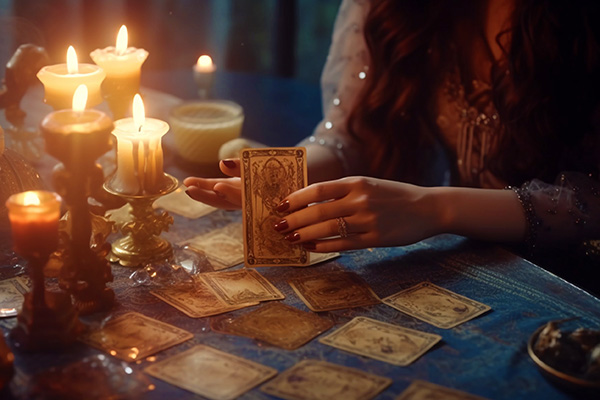Investigating the Ideas of Earth Angels, Synchronicity, and Divine Wonders
 Whenever individuals express skepticism about earth angels, synchronicity, and miraculous divine intervention, I make it a point to mention the remarkable tale of Katie Lentz and the mysterious priest.
Whenever individuals express skepticism about earth angels, synchronicity, and miraculous divine intervention, I make it a point to mention the remarkable tale of Katie Lentz and the mysterious priest.
This account serves as a compelling illustration of the incredible and awe-inducing ways in which the spirit and the divine can reveal themselves precisely when we most require assistance.
In 2013, Katie Lentz, a 19-year-old college student from Missouri, found herself in a grave car accident when another vehicle crossed the centerline and collided head-on with hers. Her car was severely damaged, leaving her trapped within it.
Rescue crews tirelessly worked to extract her, but the situation was critical. After roughly an hour, they began to fear for her survival due to the severity of her injuries and the challenges in extricating her.
In a pivotal moment, Lentz requested someone to pray with her. Suddenly, a priest appeared seemingly out of thin air. Dressed in traditional priestly attire and carrying anointing oil, he prayed with her, anointed her, and assured the rescue team that they would soon be able to release her.
Just as he finished his prayer, an extra rescue unit arrived with the necessary tools to free her. However, when the rescuers turned back to express their gratitude to the priest, he had vanished. No one recognized him, nor could anyone trace where he had come from or gone, and he was absent from all pictures taken at the scene.
The tale of the phantom priest quickly garnered attention online. People were captivated by the miraculous event amidst a tragic incident. Nonetheless, despite extensive investigation and speculation, the identity of the priest remained a mystery for an extended period.
Miracles take place every single day. Not just in distant rural areas or sacred sites across the world, but also here in our daily lives ~ Deepak Chopra
A few days post-incident, Father Patrick Dowling, a Catholic priest from the Diocese of Jefferson City, Missouri, stepped forward and revealed himself as the enigmatic priest. He detailed that he was on his way home from Mass when he stumbled upon the accident and volunteered to assist.
While the situation was certainly dramatic, Father Dowling humbly maintained that his presence was not miraculous, but simply a case of being in the right place at the right time. He attributed the successful rescue to the efforts of the medical teams and rescue workers instead.
Fire Chief Raymond Reed did not completely concur. In a post-accident interview, he noted a palpable shift in the atmosphere after the priest’s arrival, suggesting that something extraordinary had transpired. “There was a calmness that, to me, seemed to envelop the entire site,” he reported to news outlets.
Katie sustained broken ribs and legs but ultimately survived, and this story is remembered as an inspiring event, with many interpreting the priest’s unexpected arrival as a sign of divine intervention.
I relish it when news outlets cover stories like these. I wish there were more instead of the often-negative narratives we typically see. When one begins actively searching for similar accounts, many like-minded occurrences about synchronicity, divine intervention, and miraculous examples of angels come to light:
The California Highway Birth (2023): Ying Shi and her husband, Hongwei Zhang, encountered a crisis when they crashed while rushing to the hospital as her water broke. Dayna Dumont, returning home from her hospital shift, noticed the distressed couple and stopped to provide assistance. Her prompt actions ensured the safety of both mother and child until help arrived.
The Gas Station Kindness (2021): At a Pennsylvania gas station, Nicole Grimes came across a family in distress. Feeling an urge to help, she filled their gas tank and offered them clothes she had aimed to donate. Inspired by her generosity, other patrons at the station joined in, showcasing the ripple effect of compassion.
Carmen Menayo Healing (2020): After years of blindness caused by a degenerative illness, Carmen Menayo experienced a remarkable regaining of her sight after praying at the Shrine of Our Lady of Lourdes in France. Her story gained attention for its spiritual significance as an instance of faith-based healing.
The Falling Tree (2019): In England, retired Joyce Woodward narrowly escaped death when a large tree crashed onto her car just as she was about to enter. A phone call distracted her, leading her to believe divine intervention saved her life.
Nigerian Sun Miracle (2017): During a religious gathering in Benin City, Nigeria, thousands claimed to observe the sun dancing and changing colors.
Lucia Borsellino Healing (2017): After prayers and a visit to a sacred site, Borsellino, who suffered from a grave illness, experienced a sudden and complete healing.
John Smith Healing (2015): A young boy submerged in icy water in Missouri for 15 minutes, declared dead for over an hour, spontaneously began breathing again and made a full recovery.
Utah Boy’s Rescue (2014): A mysterious voice guided rescuers to a submerged vehicle, where they found and rescued a young boy who had been trapped for several hours.
Miracle of the Eucharist (2013): A piece of bread consecrated during a Polish Catholic Mass transformed into human tissue, as confirmed by scientific analysis.
The Motorcycle Accident (2011): Following a severe motorcycle crash that left Kevin Diepenbrock stranded at the bottom of a 105-foot ravine for 30 hours, a car stopped right at the spot where he lay. He called for assistance one last time, and his wife, Courtney, believes God and guardian angels shielded him throughout his ordeal.
Chilean Miners Rescue (2010): Thirty-three miners trapped underground for 69 days emerged from a coordinated rescue effort that many viewed as evidence of divine intervention.
Flight 1549 (2009): After both engines failed, Captain Chesley “Sully” Sullenberger successfully landed US Airways Flight 1549 on the Hudson River in 2009, an event hailed by many as miraculous, with all on board emerging unharmed.
The Nun’s Intervention (2009): Rebecca Soanes, assaulted by a would-be robber, was saved by a nun who appeared and led her to safety. She believes this mysterious nun was a guardian angel.
Voice in the Woods (2007): During a search for a mother and her infant trapped in the woods, two police officers were led by an inexplicable voice.
The Resurrected Infant (2007): In Aligarh, India, a newborn declared dead by medical staff miraculously revived during her funeral procession.
The 9/11 Rescues (2001): During the events of September 11, numerous accounts emerged of individuals feeling a mysterious compulsion to leave their buildings just before the planes struck, a phenomenon many attributed to a higher power.
Every element we interact with in our daily lives, even our own bodies, is a miracle. By positioning the kingdom of God appropriately, it illustrates the possibility of living joyfully right here and now ~ Thich Nhat Hanh
These instances represent just a handful of the countless occurrences that resonate with this theme. However, numerous miracles go unreported, and many are overlooked entirely. When we do recognize them, these instances remind us that even when we do not fully comprehend or anticipate it, we are directed and safeguarded by forces beyond our physical understanding.
In moments of vulnerability, a higher power, the universe, or divine energy often arrives to assist us in unexpected manners. Whether through a mysterious figure emerging exactly when needed or circumstances aligning in seemingly miraculous ways, countless individuals recount their encounters with what they perceive as divine intervention.
One of my favorite scriptures remains Matthew 7: “Ask and it will be given to you; seek and you will find; knock and the door will be opened to you.” While I don’t practice any particular religion dogmatically, I embrace a deep spirituality and a belief in Christ Consciousness. My spiritual journey has taught me that greater miracles unfold in my life when I surrender my significant troubles and challenges to God.
I discover that when circumstances grow overwhelming, I simply ask God to bear my burdens and assist me if it aligns with His will. He has done this time and again. I only wish I had understood years ago what I know today. It would have made my life considerably less traumatic and intricate. I could have chosen prayer rather than becoming entangled in trivial conflicts. I now recognize that whenever I invoke God’s presence and request assistance, I am always met with a response. Though it may not occur on my timeline, in divine timing, He always provides an answer.
|
Moon Goddess is a third-generation empathic healer and visionary. Over 20 years ago, she began offering healing readings to individuals. Her interest in and study of all things metaphysical started at a young age. Being hypersensitive allows her to perceive and feel events before they occur. Utilizing Tarot and drawing on her Guides, she supports countless people globally. After his passing, her grandfather fulfilled his promise by returning to bid farewell, delivering an extraordinary experience. Moon is certain that Heaven exists, and it is magnificent! By sharing her experiences, she has provided comfort to many dealing with loss or grief. Connect with Moon Goddess for a reading at PsychicAccess.com. |
Examining the Ideas of Earth Angels, Synchronicity, and Divine Miracles
Throughout the ages, humans have endeavored to unveil the mysteries of the universe and the impact of higher powers in our existence. Ideas like Earth Angels, synchronicity, and divine miracles have surfaced as frameworks to elucidate extraordinary happenings that appear to contradict logical reasoning. Though these notions may be rooted in spirituality and personal conviction, they present an intriguing perspective on the interconnection of our world and the potential for divine intervention.
Earth Angels, often characterized as spiritual entities or celestial messengers, are thought to be individuals sent to Earth with a specific purpose or mission. These beings are believed to embody compassion, empathy, and an intrinsic desire to assist others. Earth Angels are seen as highly intuitive, attuned to the needs of others, and frequently serve as sources of light and love in what can sometimes seem like a dark and disorderly world.
The term synchronicity, introduced by Swiss psychologist Carl Jung, denotes meaningful coincidences occurring in our lives. It implies that events, thoughts, and experiences are not merely random but interconnected by a deeper, underlying order. Synchronicities are interpreted as signs or messages from the universe, steering us along our life journeys. These phenomena often evoke feelings of awe and astonishment, as they seem to transcend the laws of probability and reason.
Divine miracles, in contrast, are remarkable events viewed as outcomes of divine intervention. These miracles are often perceived as manifestations of God or higher powers, defying the universe’s natural laws. They can manifest in various ways, such as miraculous healings, inexplicable rescues, or even extraordinary coincidences that alter lives or redirect events. Divine miracles serve as reminders of the existence of a higher power and the potential for greatness to emerge in our daily lives.
While these ideas may come across as abstract or even fantastical to some, numerous individuals have recounted personal experiences aligning with these concepts. Narratives of Earth Angels impacting lives through kindness and compassion abound. People have shared stories of synchronicities guiding them to significant decisions or offering solace during trying times. Additionally, countless accounts of divine miracles have left people in awe of the universe’s power and kindness.
Skeptics maintain that these concepts are mere products of human imagination or wishful thinking. They argue that attributing extraordinary occurrences to Earth Angels, synchronicity, or divine miracles helps individuals find meaning and purpose in a seemingly chaotic realm. Conversely, supporters of these ideas argue that personal experiences and anecdotal evidence should not be dismissed lightly. They assert that these concepts provide a profound insight into the interconnectedness of existence and the potential for divine intervention within our lives.
The belief in Earth Angels, synchronicity, or divine miracles ultimately lies with the individual. These ideas offer a framework for interpreting the extraordinary happenings in our lives and instill a sense of hope and wonder. They remind us that our existence encompasses far more than it appears and that a greater force operates within the universe.
Ultimately, delving into these concepts prompts us to re-evaluate our grasp of reality, opening avenues to countless new possibilities. It encourages us to embrace uncertainty and remain receptive to the remarkable encounters that life may present. Whether these ideas stem from spirituality, faith, or personal belief systems, they offer a distinctive perspective through which we can ponder the enigmas of our existence and discover meaning in what often seems unexplainable. Continue reading














